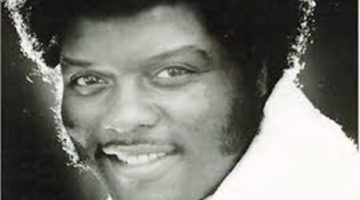ST. PETERSBURG, Fla. (AP) _ Eugene Patterson, a Pulitzer Prize-winning editor and columnist whose impassioned words helped draw national attention to the civil rights movement as it unfolded across the South, has died at 89.
Eugene Patterson, 89, voice on civil rights, dies
Received by Newsfinder from AP
Jan 13 2013, 04:20 Eastern Time
- Photographs FLPET202, FLPET201, FLPET205
Editors Note New approach. With AP Photos.
By MITCH STACY
Associated Press
ST. PETERSBURG, Fla. (AP) _ Eugene Patterson, a Pulitzer Prize-winning editor and columnist whose impassioned words helped draw national attention to the civil rights movement as it unfolded across the South, has died at 89.
Patterson, who helped fellow whites to understand the problems of racial discrimination, died Saturday evening in Florida after complications from prostate cancer, according to B.J. Phillips, a family spokeswoman.
Patterson was editor of the Atlanta Constitution from 1960 to 1968, winning a Pulitzer Prize in 1967 for editorial writing. His famous column of Sept, 16, 1963, about the Birmingham, Ala., church bombing that killed four girls _ “A Flower for the Graves” _ was considered so moving that he was asked by Walter Cronkite to read it nationally on the “CBS Evening News.”
“A Negro mother wept in the street Sunday morning in front of a Baptist Church in Birmingham,” Patterson began his column. “In her hand she held a shoe, one shoe, from the foot of her dead child. We hold that shoe with her.
“Every one of us in the white South holds that small shoe in his hand. … We who go on electing politicians who heat the kettles of hate. … (The bomber) feels right now that he has been a hero. He is only guilty of murder. He thinks he has pleased us. We of the white South who know better are the ones who must take a harsher judgment.”
“It was the high point of my life,” Patterson later said in a June 2006 interview from his home in St. Petersburg. “It was the only time I was absolutely sure I was right. They were not telling the truth to people and we tried to change that.”
Patterson also spoke of what he called his good fortune to work for the Atlanta newspaper and an “enlightened” leadership that encouraged his work.
“We were rather rare editors in the South at that time,” Patterson said of himself and Constitution Publisher Ralph McGill. Patterson worked under McGill, himself a Pulitzer winner in 1959, and then succeeded him at the helm of the Constitution four years later.
Editor Kevin G. Riley at the Atlanta Journal-Constitution called Patterson’s contributions to the newspaper, Atlanta and the field of journalism “enormous.”
“We benefit still from his work and legacy,” Riley told The Associated Press via email.
In 1968, Patterson joined The Washington Post and served for three years as its managing editor, playing a central role in the publication of the Pentagon Papers. After leaving the Post he spent a year teaching at Duke University.
He became editor of The St. Petersburg Times and its Washington publication, Congressional Quarterly, in 1972 and was later chief executive officer of The St. Petersburg Times Co. Under Patterson’s leadership, the Times won two Pulitzer Prizes and became known as one of the top newspapers in the country.
Times owner Nelson Poynter, who died in 1978, chose Patterson to ensure his controlling stock in the newspaper company was used to fund a school for journalists then called the Modern Media Insititute. It is now known as the Poynter Institute, which owns the Tampa Bay Times (formerly The St. Petersburg Times).
“A person _ one person _ had to be entrusted with fulfilling what Mr. Poynter intended,” said Roy Peter Clark, the school’s first faculty member. “ … He had to be totally trustworthy, so Mr. Poynter chose Mr. Patterson.”
Patterson retired from the Times and Poynter in 1988.
A collection of Patterson’s Atlanta Constitution columns was published in book form in 2002 as “The Changing South of Gene Patterson: Journalism and Civil Rights, 1960-1968.”
Hank Klibanoff, director of the journalism program at Emory University and co-author of a Pulitzer Prize-winning book on press coverage of the civil rights movement, said Patterson wrote with deep-seated conviction about the troubled era.
Klibanoff said that when black churches were burned in southwestern Georgia in 1962, Patterson was “deeply disturbed” and wrote a column tweaking white people who claim to be religious but support segregation. He called on whites to raise money to rebuild the churches, sparking an effort that raised $10,000.
“When he sat down to write, that conviction came out. And it came out in just a very, very powerfully written way,” Klibanoff said of Patterson.
Patterson was born in 1923 in Georgia and grew up on a small farm. School, fishing and literature were his only means of escape.
He graduated from the University of Georgia in 1943 and served in the Army in Europe during World War II. His first reporting job was at the Temple (Texas) Daily Telegram. He also had stints for United Press in Atlanta, New York and London during his journalism career.










No Comment